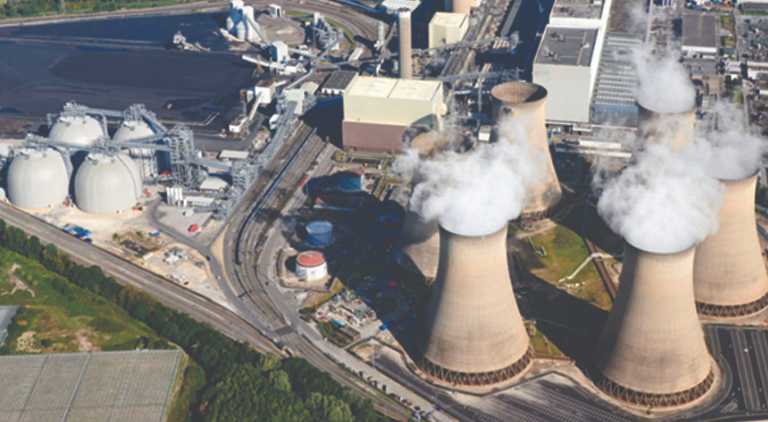Keeping the Lights on in the Middle of Pandemic
By EPR Magazine Editorial December 5, 2020 2:07 pm IST
By EPR Magazine Editorial December 5, 2020 2:07 pm IST

Based in North Yorkshire, England, Drax power plant has a capacity of 3,906 megawatts (MW) and produces around 14 terawatt-hours (TWh) of power a year, 96% using compressed wood pellets, a form of sustainably sourced biomass. The remainder is produced using coal, for which commercial operations come to an end in March 2021.
The boiler units went into operation in the 1970s and require ongoing monitoring and maintenance to prevent unplanned outages from erosion and corrosion damage. As well as surface protection solutions from IGS, the plant utilises continuous inspection systems that monitor the boiler tubes’ integrity and generate data to inform and validate the plant engineers’ metal wastage prevention strategies.
Boiler Maintenance Timeline – Boiler Waterwall and Superheater Protection
Colin Bateman, Director of Business Development EMEA, IGS, commented: “We started servicing this Major UK Power Plant in 2016 and have since been awarded a long-term contract for thermal spray applications within their boilers. Our capability to quickly mobilise our applications team and equipment, coupled with extensive experience, enable us to exceed client expectations in terms of shutdown schedules and solution reliability.” IGS have been applying High Velocity Thermal Spray Alloy Cladding on boiler waterwalls and Ceramic coatings on the superheater.
Boiler Unit 3 2020 Outage
The boilers at this power plant run on a four-year maintenance cycle. The outage for Unit 3, a biomass boiler burning proprietary wood pellets, was initially planned for February/March 2020. Due to the COVID-19 pandemic, the start of the outage was postponed to the end of August, with the IGS work on the Unit 3 boiler waterwall scheduled for October.
Preparation for the Outage
IGS had to adapt the mobilisation of the European crew to be in compliance with the Power plant and UK COVID regulations. Quarantine was not required in accordance with the UK Government’s exemptions for specialist technical workers for the power infrastructure. All the crew were tested prior to their arrival in the UK and negative results were confirmed before entry to the site. IGS Europe was the largest team coming in from outside of the UK.
Specialist Technical Workers
www.intergratedglobal.comWe use cookies to personalize your experience. By continuing to visit this website you agree to our Terms & Conditions, Privacy Policy and Cookie Policy.